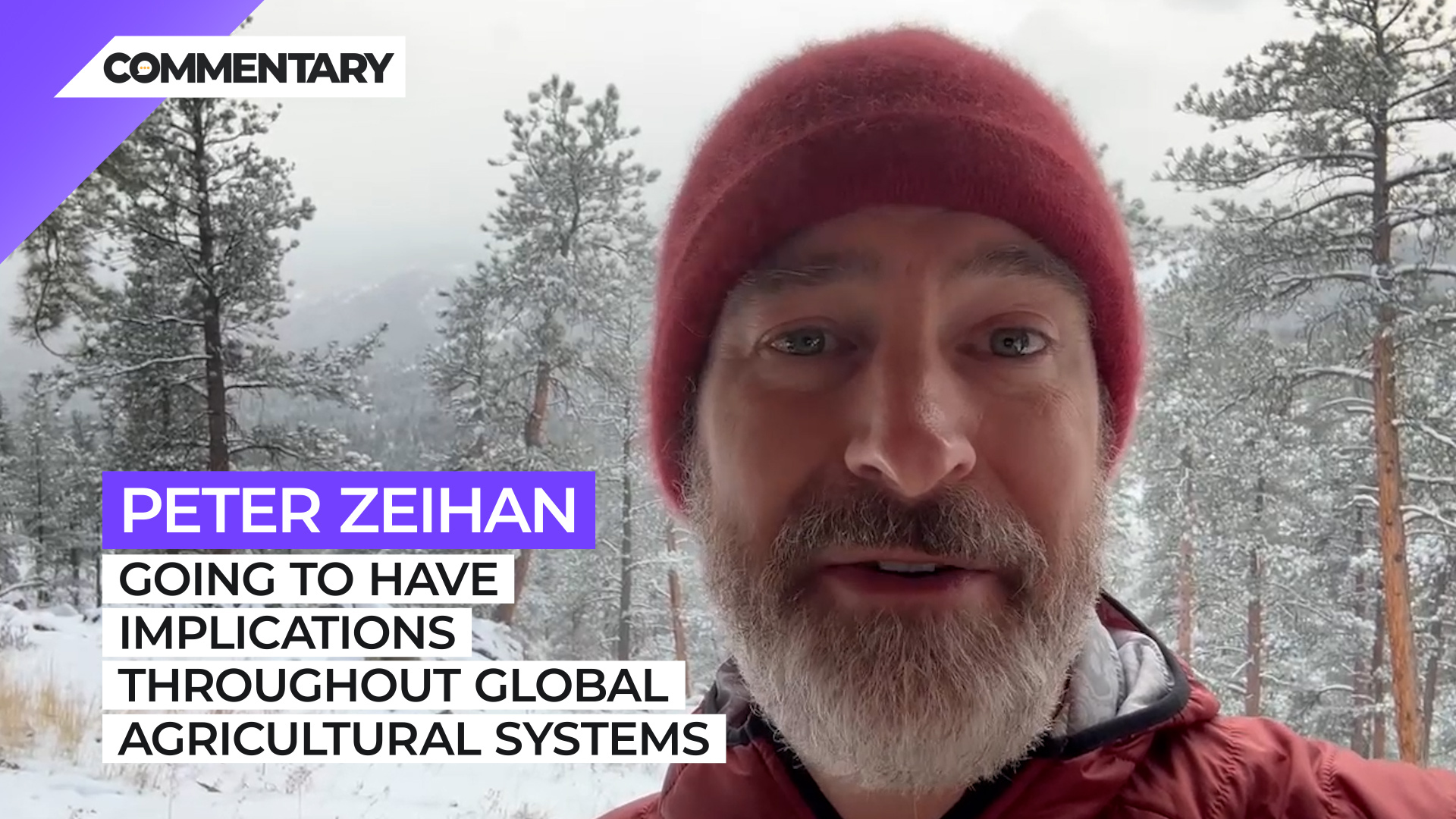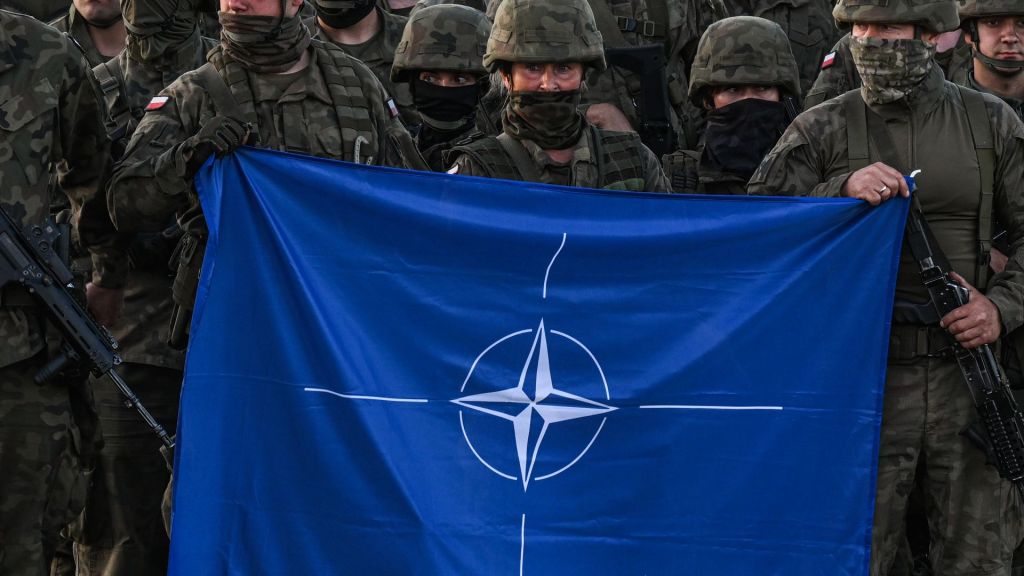
Commentary
-
Our commentary partners will help you reach your own conclusions on complex topics.
Hey everyone, Peter Zion here coming to you from foggy snowy Colorado, it is the 16th of March on Thursday, and it’s time to start talking about food shortages. We’re going to start with this part on China. So the Chinese, as you may have heard me discuss in the past have a cult of personality, which means things like, tests for animal diseases that the government finds inconvenient, tend to not just happen, because the CCP reps get in the way. So there’s something called African swine fever, which is something that the pork community is terrified of, because it’s basically a bola for pigs, highly communicable always ends in the death of the pig. And if one hog in your herd gets, you basically have to call the entire thing. Now, about four years ago, China suffered through the biggest ASF epidemic in history, and over the course of about six to eight months killed more of its own hogs commercially than the rest of the world has commercial hogs. And that triggered a lot of paranoia within the CCP about fursuit food security, for obvious reasons. This is maybe happening and again, now, the way it works in a normal place, if you’re a pig rancher farmer, and you want to find out if your hog has a disease, you get a test kit, you take certain swabs and samples, and then you send that test kit with the swabs and samples into a lab. And when the lab gets the results they call you. That’s not how it works in China and China, there’s an intermediate step, where the lab calls the local CCP rep. And then the CCP rep calls you to let you know if you got a case or not. And since it’s a cult of personality, and no one has been given an approval to trigger a food crisis, they just kind of let it go on in the background. Well, in the last few weeks, there have been some very brave CCP reps who have decided to report the truth. And as of the news of this week, we now have more cases of ASF being reported in China and just the month to date than the entirety of the previous year. You see, ASF is not something you just get rid of, it’s not once and done, it gets into the wild boar and wild pig population. And then it takes decades to get rid of. According to the Chinese, they got rid of it in six months, and they haven’t had a case until recently. But all of a sudden, now it’s boiling up again. There are different strains, some are more lethal and more dangerous and more communicable than others. And officially, it’s some of those less dangerous ones that are out there. But the fact that you’ve got brave officials choosing to go against the poverty line and report them at all suggest that we have a much much much, much larger problem in store. And we should expect some significant issues throughout the food supply chains or for pork throughout the Chinese system. Will it be as bad as it was four years ago, kind of believe it will if not worse, because they’ve been allowing this to burn in the background in order to achieve political placidity. Now, how does that matter to you? Well, if the Chinese can’t guarantee pork supply, then the only other culturally significant food that they can produce in mass is rice. Now rice is the most phosphate fertilizer hungry crops that humans are capable of growing. And because of that China has historically been the world’s largest producer and exporter of phosphate. until four years ago, starting with that epidemic, the Chinese started hoarding phosphate because they were concerned about food security, and they knew they needed rice because it’s the only other socially and politically important crop that the Chinese have. Well, since then, the last four years phosphate exports have been down 20 to 80%, based on the season, very erratic based on where the Chinese level of fear is, now that we actually have official cases of African swine fever, again, we should expect phosphate exports to more or less go to zero, meaning that the single largest source of one of the three main fertilizer nutrients is suddenly in dire condition. And that is going to have implications throughout the entire agricultural system of the world. We were very fortunate in calendar year 2022. And that despite disruptions from China, from Russia and from the energy space, we had enough reserves built up in the system for all the types of fertilizers in order to kind of wiggle by and we also had excellent weather for most of the world’s farmers. The chances of that happening twice in a row, especially when you have disruptions like ASF in China right now are almost non existent. Which means that the next one tomorrow, we’re going to talk about the weather and where in the world we are seeing already disruptions to the food supply system. All right, that’s it. See you guys tomorrow.
-
Hurricane Helene hits US coast, Appalachia and beyond
Hurricane Helene hit Florida and Georgia overnight between Sept. 26 and 27 as a Category 4 hurricane, and accompanying storms will continue reaching deeper into the continental United States today. Dangerous flash flooding from the hurricane, known as storm surge, was some of the worst flooding that the Tampa Bay area has ever seen, and… -
Israel holds upper hand against Lebanon, Hezbollah and Iran
On Wednesday, Sept. 25, Hezbollah launched a ballistic missile at Tel Aviv in retaliation for Israel’s explosive pager attack that blew up devices across Lebanon. Although Israel’s defense systems intercepted the surface-to-surface missile, the attempted strike on Tel Aviv marked a significant escalation by Hezbollah. Since the siege on Gaza began, shortly after the Oct. 7, 2023,… -
The Sinaloa Cartel civil war
Fears of a civil war within the Sinaloa Cartel are growing as violence between competing factions within the cartel continues. The Mexican Army has dispatched around 600 elite troops to Sinaloa to help quell those fears, in addition to roughly 2,200 regular soldiers and National Guard. Watch the above video as Straight Arrow News contributor… -
New Ukrainian weapons hit Russia where it hurts
Ukrainian drones struck a major Russian ammunition depot, triggering a massive explosion that was captured on camera. According to the Ukrainian military, 2,000 tons of munitions had arrived at the depot before the attack. Over the past two years, Ukraine has significantly increased its domestic drone production, allowing it to scale up attacks on military… -
Weighing social costs vs. economic benefits on immigration
Global human migration is one of the defining elements of our current historical era, according to the United Nations. Migrants face both the incentives to leave — forced out by climate change, crime and corruption, extreme poverty or violence — and incentives for where to go, based on available job opportunities and so on. Migration…
Latest Stories
-
 Getty Images
Getty Images
Jay-Z sues sexual assault accuser and lawyer, says Roc Nation lost $20 million
-
 Getty Images
Getty Images
Democrats want DOJ attorney who dropped Eric Adams case investigated
-
 Getty Images
Getty Images
Millions of users’ personal data shared with US law enforcement: Report
-
 Getty Images
Getty Images
Republican leaders urge a pause on town hall meetings
-
 Getty Images
Getty Images
Media spins Trump, Zelenskyy Oval Office meeting: Bias Breakdown
Popular Opinions
-
In addition to the facts, we believe it’s vital to hear perspectives from all sides of the political spectrum.
Latest Opinions
In addition to the facts, we believe it’s vital to hear perspectives from all sides of the political spectrum. We hope these different voices will help you reach your own conclusions.
The opinions published in this section are solely those of the contributors and do not reflect the views of Straight Arrow News.





















Latest Commentary
We know it is important to hear from a diverse range of observers on the complex topics we face and believe our commentary partners will help you reach your own conclusions.
The commentaries published in this section are solely those of the contributors and do not reflect the views of Straight Arrow News.
Dr. Frank Luntz
Pollster and Political Analyst‘Biased’: What Americans think of ‘mainstream media’
‘Getting rid of them’: Americans discuss Trump and immigration
‘Woke’: Why some Biden 2020 voters backed Trump in 2024